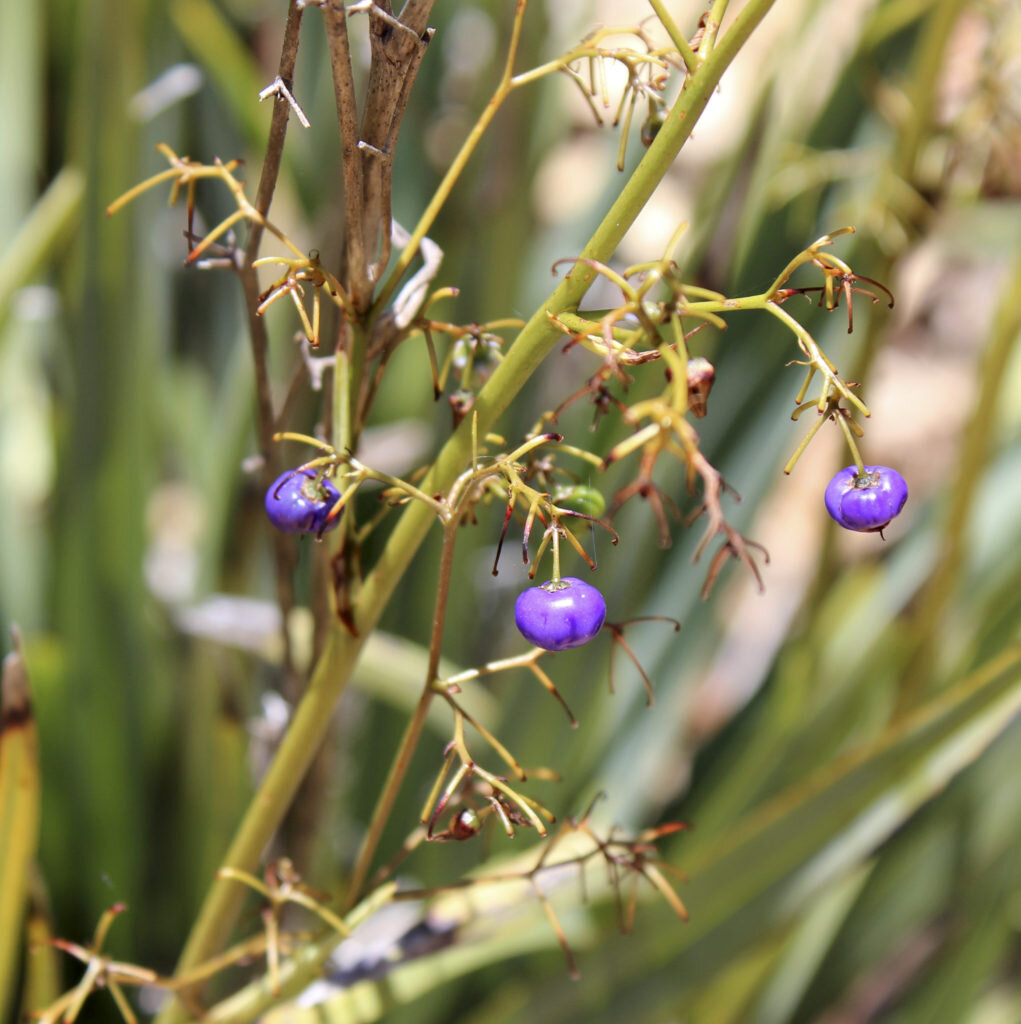The Benefits of Gardens for Anxiety and OCD
Anxiety is highly prevalent in modern Australian society. The Australian Bureau of Statistics stated in their 2009 report, Australian Social Trends, that anxiety disorders are the most common form of mental illness in the country. In any given year, 14% of individuals aged 16-85 are affected by anxiety disorders, with women affected more commonly than men, 18% and 11% respectively.
Last week was National Anxiety and OCD Awareness Week so now is a particularly good time to shine a light on this widespread illness and how gardening can help to alleviate the symptoms.
Anxiety has been defined by the American Psychological Association as, ‘an emotion characterised by feelings of tension, worried thoughts and physical changes like increased blood pressure’. They go on to say that, ‘People with anxiety disorders usually have recurring intrusive thoughts or concerns. They may avoid certain situations out of worry. They may also have physical symptoms such as sweating, trembling, dizziness or a rapid heartbeat.’
Of course, we all feel anxious from time to time; not everyone who ever feels anxious is suffering from an anxiety disorder. Anxiety is a multisystem response to a perceived threat or danger and it is natural for human beings to react to situational and environmental stressors with anxiety. According to Beyond Blue, anxiety disorders occur when these feelings and symptoms do not go away, especially when there is no particular reason or cause. The feelings are not easily controlled and can affect every aspect of our lives, from work to social life and relationships, and impact heavily on an individual’s ability to lead a normal and full life.
There are a number of different anxiety disorders, such as obsessive compulsive disorder (OCD), generalised anxiety disorder (GAD), social phobia, specific phobias, post-traumatic stress disorder (PTSD) and panic disorder.
According to PsychologyToday.com, OCD is defined as an ‘anxiety disorder in which people have unwanted and repeated thoughts, feelings, images and sensations (obsessions) and engage in behaviours or mental acts in response to these thoughts or obsessions. Often the person carries out the behaviours to reduce the impact or get rid of the obsessive thoughts, but this only brings temporary relief.’
Treatment of anxiety in western medicine traditionally revolves around medication but there are activities and herbal remedies that have been known to help alleviate the symptoms of anxiety too. Self-help groups can assist through shared experience and encouragement and cognitive behavioural therapy can also be used to modify thinking and behaviour.

Spending time outdoors has been shown to assist through additional exposure to sunlight, leading to higher levels of vitamin D production and calcium absorption. Vitamin D has been shown to release the neurotransmitters in the brain, allowing them to convert tryptophan into serotonin, a hormone known to improve your mood. Gardeners have been shown scientifically proven to have increased levels of hormones such as serotonin and dopamine, as well as reduced levels of the stress hormone cortisol. There is also a bacterial strain found in soil, mycobacterium vaccae, and improves the health of gardeners. This ‘friendly’ strain of bacteria is absorbed through the skin when you garden and can help to improve levels of serotonin and dopamine as well.
Along with these benefits and the advantages of increased physical activity achieved through gardening, you can also find time for meditation and contemplation in the garden. These activities have also been found to be helpful in stress reduction and decreased anxiety levels. Alternatively, some of the more physical labours of active gardening can provide an opportunity for venting anger, frustration and aggression. Chopping wood, heaving bags of mulch or ripping out weeds can all be a great way of letting go of those darker urges and feelings.
Cultivating certain herbs and vegetables in your garden can also be a great way of reducing stress and anxiety. Plants that are high in calcium, magnesium and vitamin B can be used for stress reduction so cultivating these plants and adding them to your diet can assist. Try plants such as broccoli, spinach, asparagus and cauliflower as well as plants with complex carbohydrates, such as blackberries and squash to improve your serotonin levels.

Aromatherapy is another alternative medicine that you can use to help reduce anxiety. By cultivating lavender, a plant well-known for its relaxing properties, you can harvest the flowers and use them in a variety of products such as soaps, lotions and oils for regular use. Other herbs or plants that may prove useful include passion flower, lemon balm, sunflowers and St John’s Wort.
You can also use your therapeutic garden to support other interests and hobbies that you find relaxing, such as cooking or encouraging butterflies and other fauna into your garden. The selection of plants is crucial here and choosing seasonal plants that grow well in the climate and soil of your own garden will help you to be much more successful.
Choosing to enhance your therapeutic garden with plants and built features that stimulate your senses can also be an excellent way of encouraging mindfulness. Approaching your garden in a mindful fashion will help you to focus on the present, the joy of your surroundings, and your interaction with nature. Including water features, plants that highlight the change of seasons, encourage birds with beautiful calls, or plants that rustle in the wind are all great ways of enhancing your awareness of the natural world around you. Time and again, research has shown that regular interaction with nature, even in small doses, improves health and promotes a sense of well-being.
Horticultural therapy conducted in a therapeutic garden can also assist with the treatment of anxiety. According to an article featured by Crownview Medical Group Inc., Mitchell Hewson told USA Today that, ‘Horticultural therapy as a treatment for many psychological and physical disorders is a valid and increasingly popular intervention.’ He went on to say, ‘Horticultural therapy stimulates thought, exercises the body and encourages awareness of the external environment. Moreover, the clients who have benefited from this type of therapy report a renewed desire to live, decreased anxiety and improved self worth.’

And how can gardening assist individuals with OCD anxiety disorders particularly? One sufferer, Kristen Polito explains in her blog about her battles with OCD from a young age. She has outlined how gardening has helped her to engage in an enjoyable activity that is outside of her OCD tendencies and control. She says, ‘My gardening has been the one area of my life that exists outside the perfectionistic bubble. There’s so much work to be done and tending to do, I simply don’t have the time or energy to fuss over whether rows of crops are symmetrical. Nature positively defies me by growing plants to varying heights and widths. I have no control over it, and there’s a sense of peace and freedom in knowing and accepting that.’
So, this week, if you or someone you know is suffering from anxiety, why not consider the benefits that gardening and associated therapies can offer? The mental and physical health benefits of interacting with nature can also be a wonderful way of supplementing the approaches of western medicine you may already be trying. Give it a go, you just might find the relief you have been searching for.
Sources:
https://www.beyondblue.org.au/the-facts/anxietyhttp://medical-dictionary.thefreedictionary.com/Anxietyhttp://www.apa.org/topics/anxiety/https://www.psychologytoday.com/conditions/obsessive-compulsive-disorderhttp://www.abs.gov.au/AUSSTATS/abs@.nsf/Lookup/4102.0Main+Features30March%202009http://www.sound-mind.org/gardening-reduces-stress.html#.WYZU-4VOKUkhttps://www.psychologytoday.com/blog/worry-and-panic/201505/petal-power-why-is-gardeningso-good-our-mental-health
https://www.vitamindcouncil.org/health-conditions/depression/http://sandiegopsychiatrist.com/horticultural-therapy-for-anxiety-and-depression/http://naturalanxietymeds.com/gardening-anti-anxiety-technique/https://themighty.com/2016/05/gardening-helps-with-obsessive-compulsive-disorder
